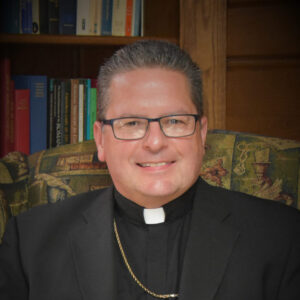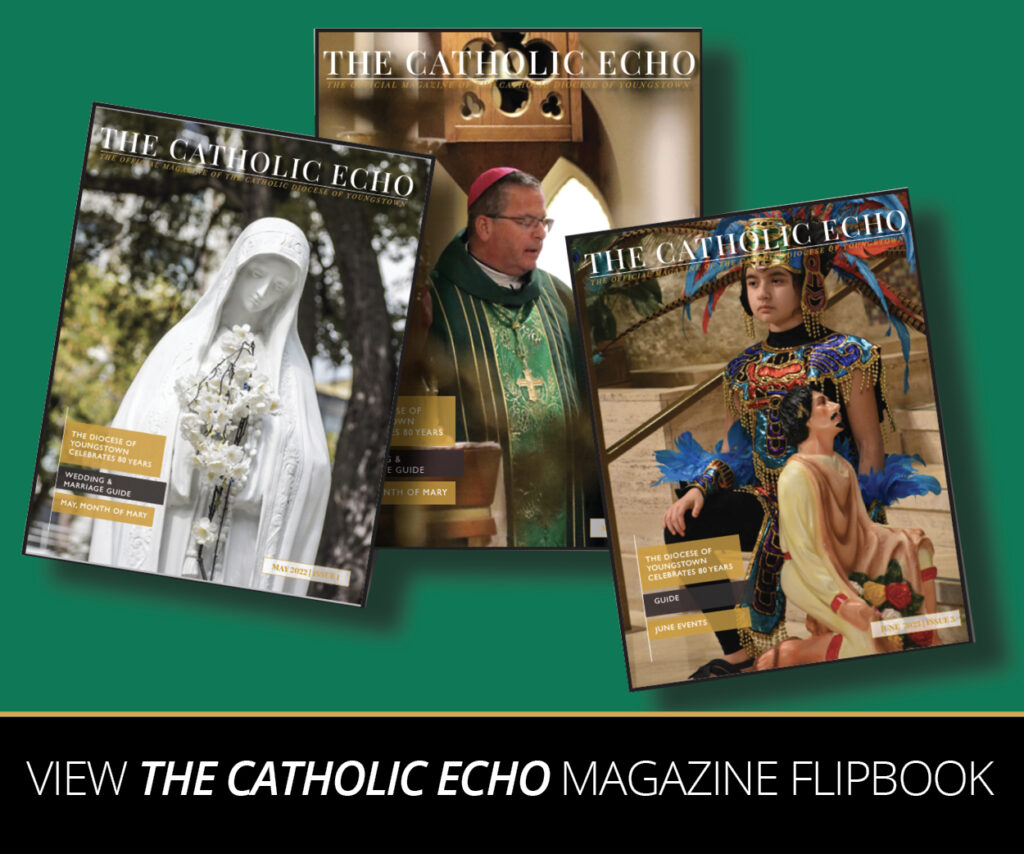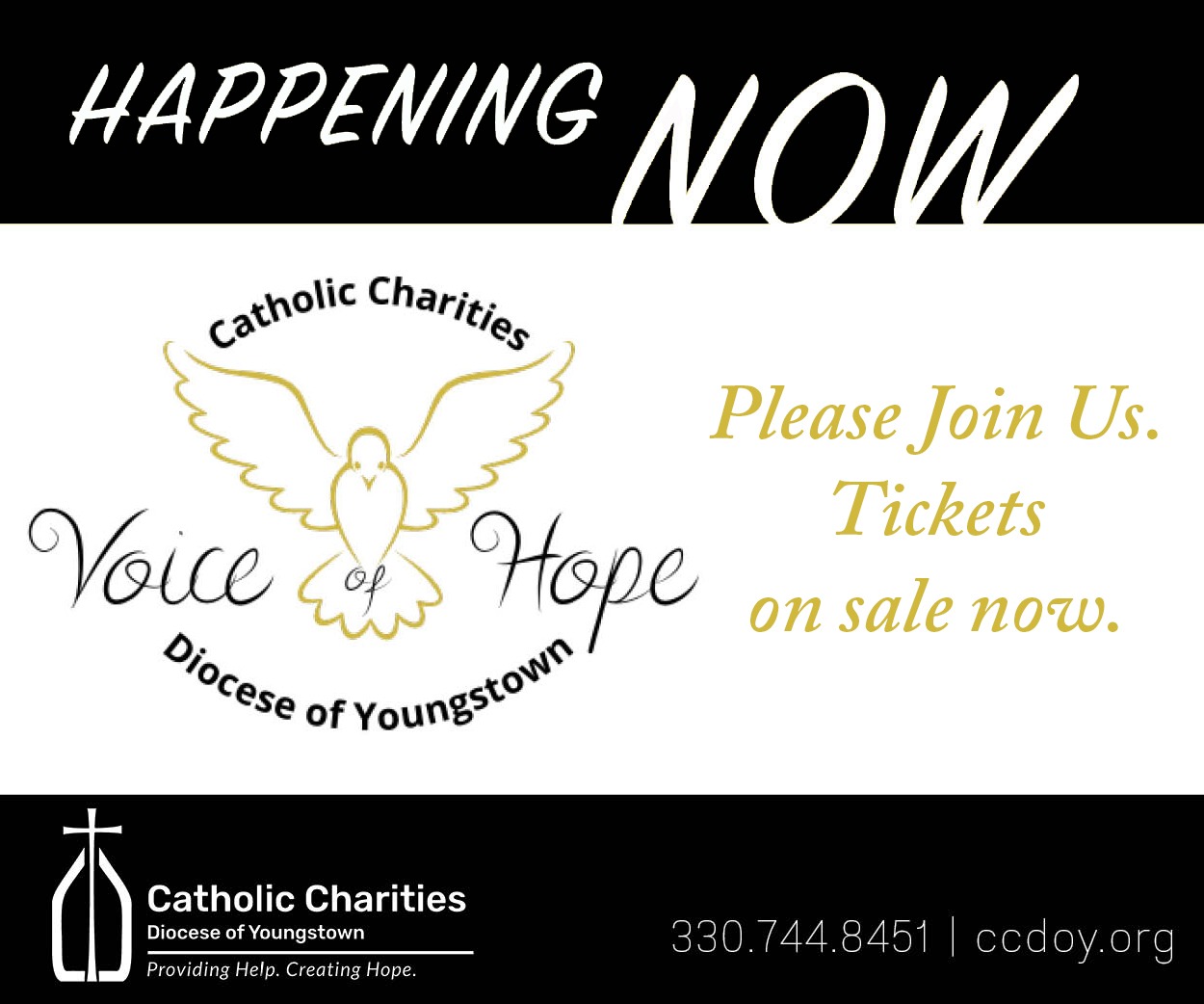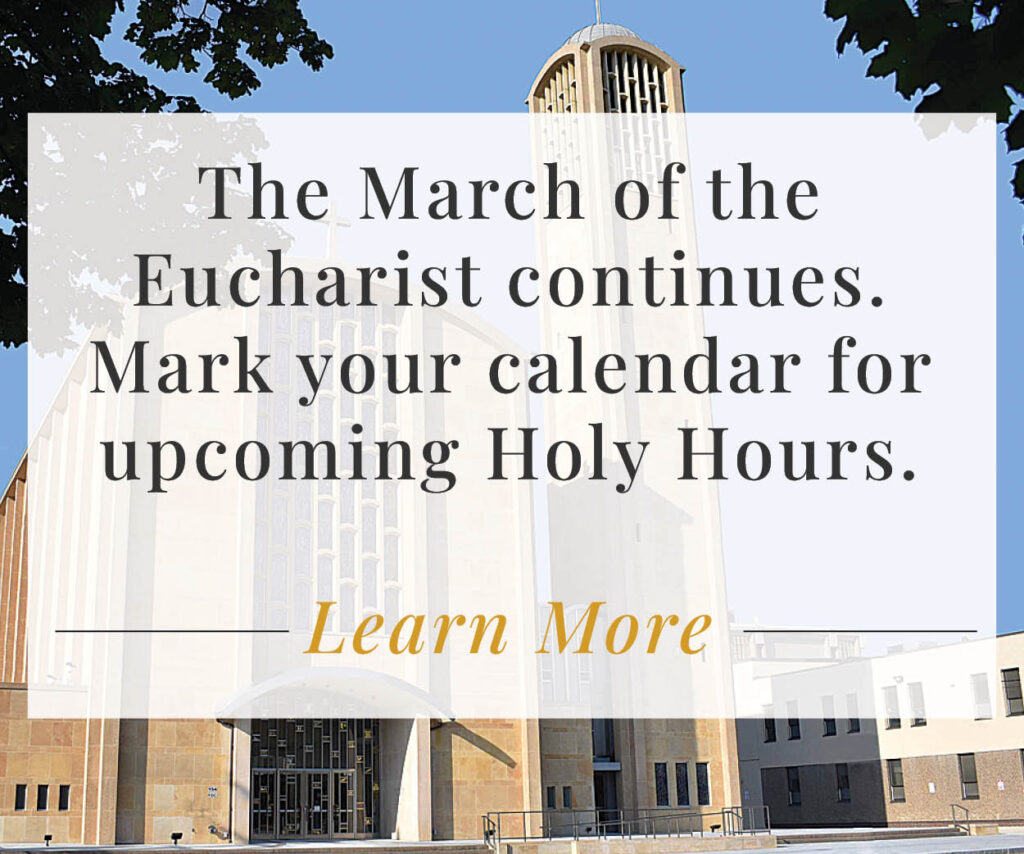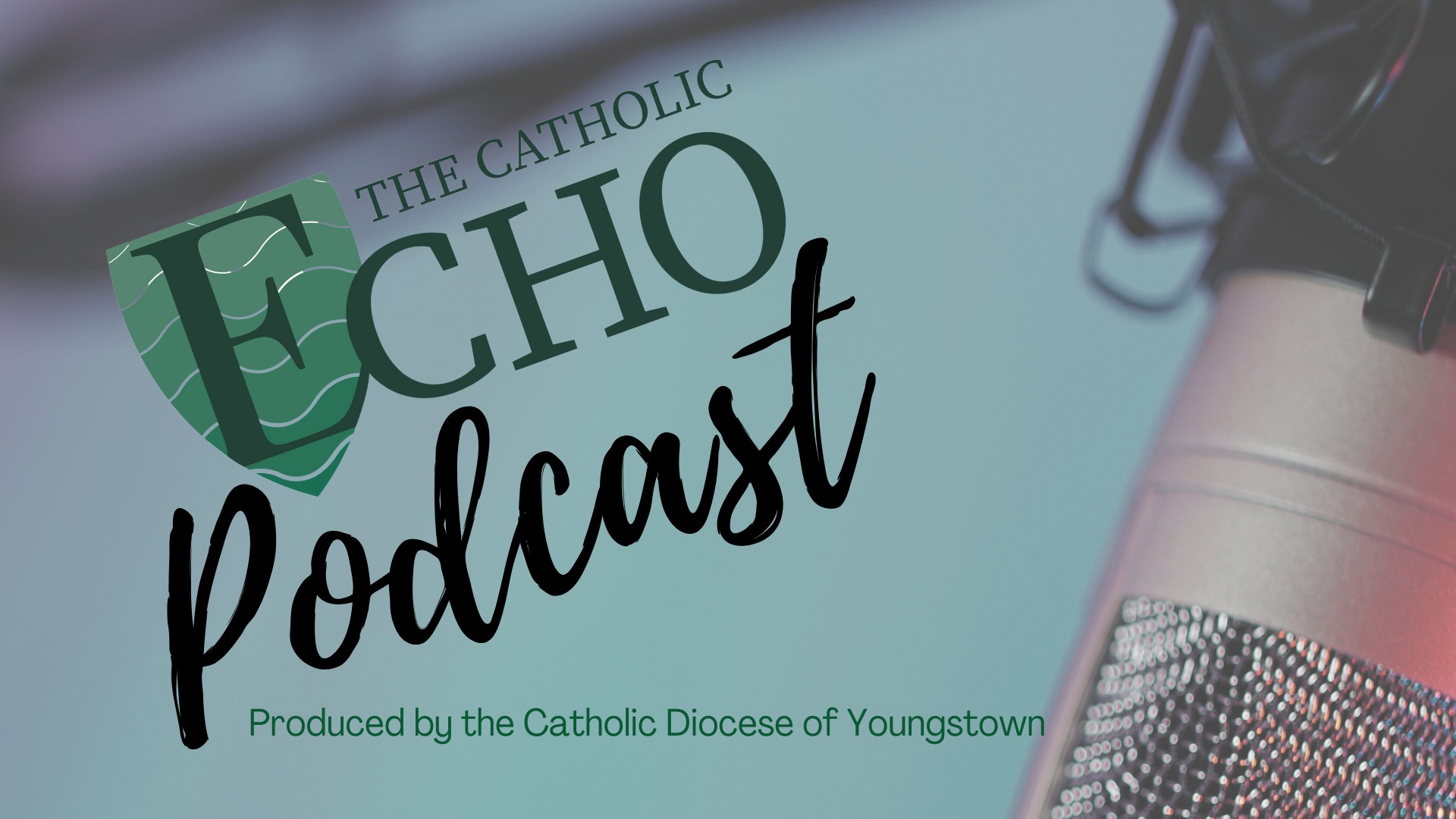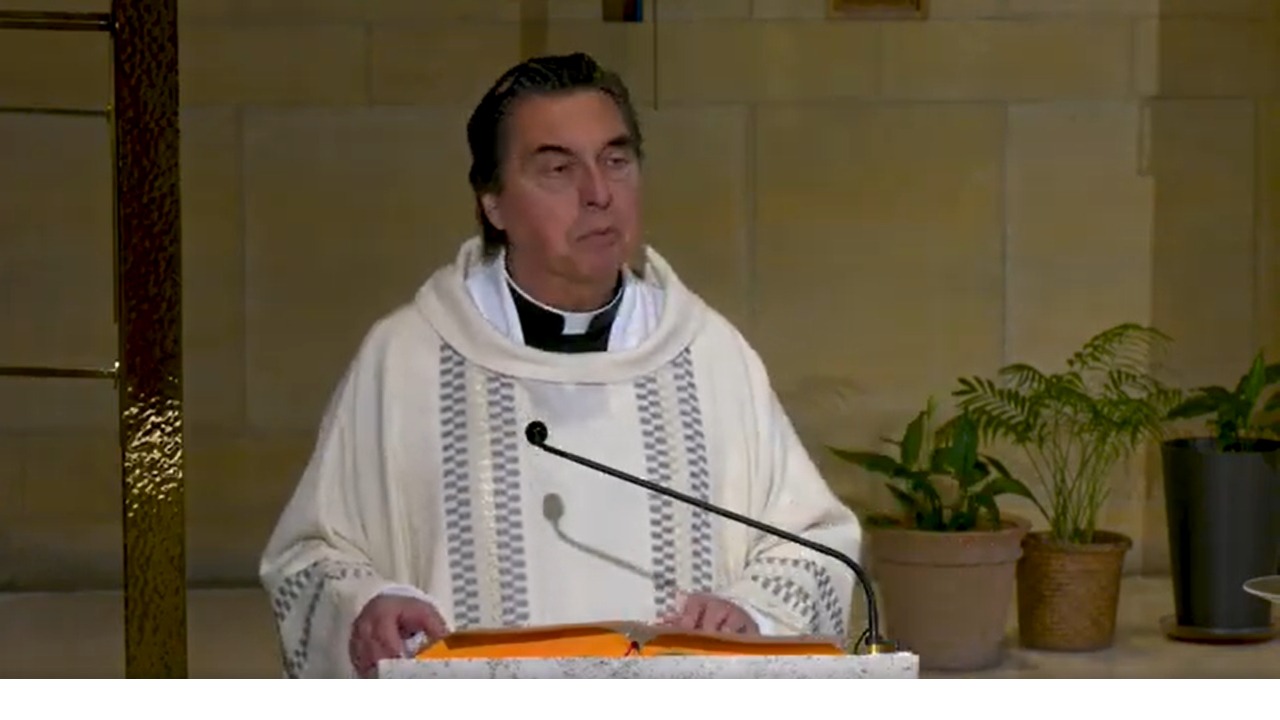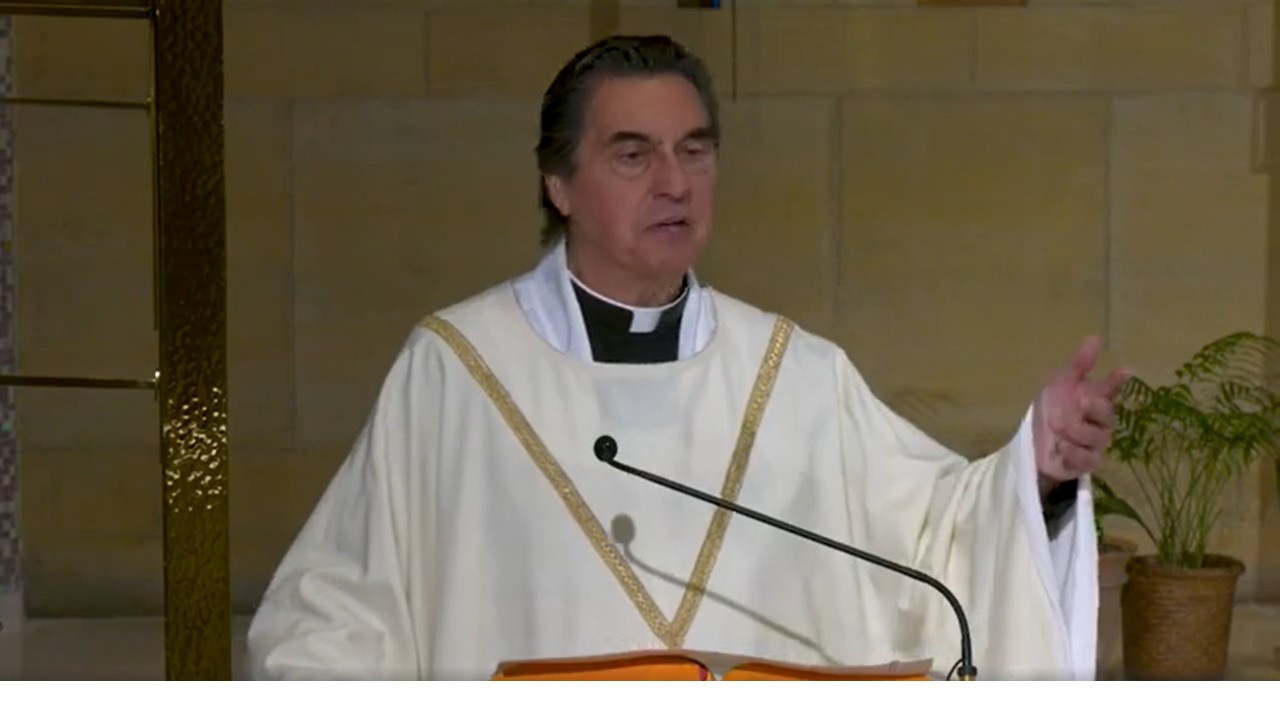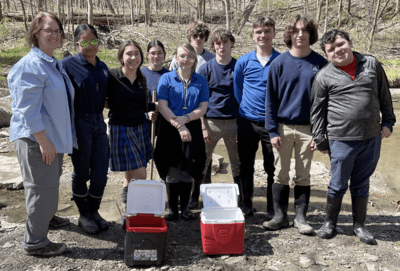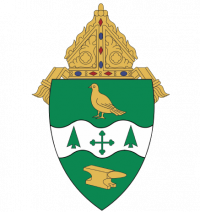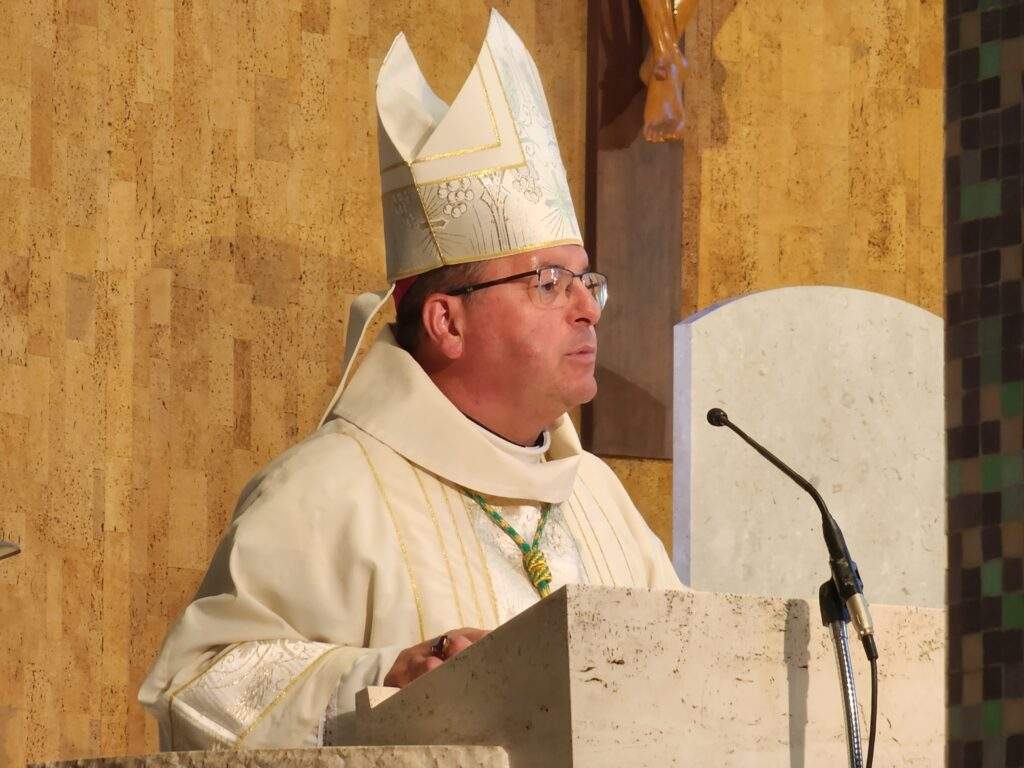
It Is always humbling becoming part of someone’s story. On the day of our baptism, we are immersed into a love story and intimate relationship with the one God, Father, Son, and Holy Spirit. We live out this relationship with the Holy Trinity as members of the Body of Christ in communion with the Church. And like those first disciples, we take to heart every day the charging words of Jesus who said, “Go, therefore, and make disciples of all nations, baptizing them in the name of the Father, and of the Son, and of the Holy Spirit, teaching them to observe all that I have commanded you.” (Matt. 25:19-20)
Many of us are here today in this Mother Church of this diocese because our parents heard those words and took them seriously much like their parents did as well. And as we in this moment embrace this mandate and go forth to proclaim the joy of the Gospel and invite others into a relationship with the Triune God and the Church, we trust in the reassuring words of Jesus who said, “And behold, I am with you always, until the end of the age.”
In the Christian Tradition the virtues of faith, hope, and love are often mentioned through depictions of the Divine Trinity because it is these virtues that enable Christians to be in communion with the Holy Trinity. Article #1840 of the Catechism of the Catholic Church states, “The theological virtues dispose Christians to live in a relationship with the Holy Trinity. They have God for their origin, their motive, and their object—God known by faith, God hoped in and loved for his own sake.” The cover of my second Pastoral Letter entitled “Practicing the Virtues of Faith, Hope, and Love: Living the Virtues Together in Tough Times” beautifully captures the sense that the virtues and the entire Christian life, exhibited so beautifully by Mary and the Communion of Saints, emanate and flow from the life of God.
Jesus desires that we all share in the abundance of this life, for he says, “I come that you might have life and have it abundantly.” (John 10:10) In practicing the virtues of faith, hope, and love we come to know God and this abundant life. At the same time, in living out these spiritual habits of the heart in this secular world with its many shadows of evil, we come to know at times resistance, scorn, and even persecution. In fact, many of our ancestors in the faith have been persecuted and even martyred for their uncompromising conviction to be women and men of faith, hope, and love.
The Gospel for today reassures us as we live out our faith, hope, and love in this present time and face the reality of resistance and persecution. Jesus encourages us to not be afraid. Moreover, he says, “Everyone who acknowledges me before others I will acknowledge before my heavenly Father.” At the same time, Jesus issues a warning when he says, “But whoever denies me before others, I will deny before my heavenly Father.”
When we look at the story of our Church universal, it is truly one in which the clergy, religious, and laity aspires to be in communion with the Triune God through practicing the virtues of faith, hope, and love. It is our custom as Catholics to remind ourselves of this relationship with God every time we enter a church and bless ourselves with Holy Water, “In the name of the Father, and of the Son, and of the Holy Spirit.” We often frame our prayer with the same words. And in that prayer, we ask God that our faith will overcome all fear, our hope will transcend despair, and our love will triumph over hate and indifference.
For 80 years the clergy, religious, and faithful of this local Church of Youngstown have desired to live in relationship with the Triune God and each other by living the virtues of faith, hope, and love. We stand on their faith, hope, and love. It is important that we keep telling these stories. That is why establishing a Diocesan Archives with a professional staff is so important. For if we stop telling our story, we risk becoming irrelevant and weaken the fabric of our Church. I invite you to take some time and visit the exhibit prepared by our Archives staff on 80 years of Faith, Hope, and Love. I am grateful to our Archives staff, Joan Lawson, Hannah Klacik, Fr. Robert Lanterman and in the short-term seminarians Daniel LaPolla and Craig Zibert for all of their efforts in this regard. And as if that exhibit is not enough, we are so blessed to have with us today, a living exhibit, Monsignor James Kolp who has been a priest 73 years of the 80 that this diocese has existed.
Please allow me now to take a moment and share a story about each of these virtues from our past.
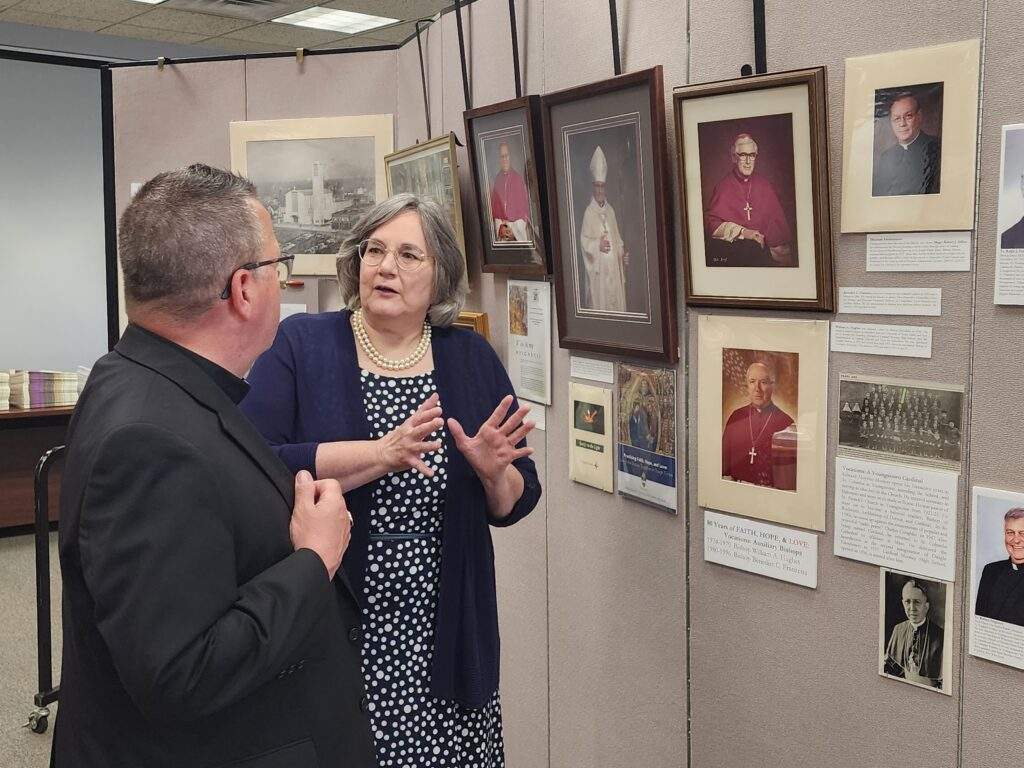
The Catholic people of Columbiana County in 1817 adhered to their faith even though they did not always have a priest. Daniel and Margaret McAllister and 15 other Catholic families supported each other in their desire to receive the Sacraments. They would often gather in the McAllister home from 1817-1820 when missionary priests were able to visit. These families lived about seven miles from Lisbon which was known then as the Catholic Settlement but later named Dungannon. In 1820, the McAllisters and their friends built a brick church, 30 x 40 feet, under the direction of Father (later Bishop) Edward Fenwick, OP, one of the Dominican missionaries who regularly traveled through Ohio.
Now Daniel McAllister migrated from Ireland to Pittsburgh in 1812 and then to Columbiana County in 1815. Imagine the strength of faith this family needed as they traveled ocean and land, over mountains and valleys, through years of a scarcity of priests but always striving to keep Jesus Christ at the center of their lives. This family often offered lodging to priests setting a trend for how good our people are to their priests. The family also contributed land, labor, and money to build and maintain a church.
The foundation of faith that the family established endures in Dungannon today. Catholic members grew so much in the area that within 7 years the 1820 church building, dedicated to St. Paul, had to be enlarged. By 1846, that enlarged building was outgrown, and the people laid a cornerstone for their new building placed under the patronage of St. Philip Neri by Bishop Rappe of Cleveland in 1849. This brick church on a rise of land endures to this day as a compelling sign of faith to all who look upon it. This strong faith has been replicated again and again in the six counties of our diocese. What an amazing story of faith!
“Ruin” is an odd word to begin a story of hope with, but it is an accurate word. On September 2, 1954, Saint Columba Cathedral was in ruins, after a lightning bolt struck the church causing the fire that consumed it. As Bishop Emmet M. Walsh wrote, “Every Catholic in the Diocese of Youngstown was stricken to the heart by the destruction of St. Columba Cathedral…It was our Mother Church, the core and center of our common Catholic life. It belonged to all, and it was beloved by all. Hence all felt its loss as personal.”
But “ruin” is never the end of the story for people of hope. As Bishop Walsh put it: “All the faithful can once again be heartened as a new structure is raised on the site of the burned-out Cathedral…To every Catholic it is a matter of pride in our Mother Church, and of obligation to our holy heritage that we raise a truly splendid Cathedral. Our kindred of an earlier generation, poorer in numbers and resources, did so. What made that striking accomplishment possible? Their sturdy faith, their soaring love of God, and their profoundly Christian willingness to sacrifice. These virtues are present in us no less in them. We will match their achievement.” This same hope continues to be exemplified today in our diocese, most especially by our brothers and sisters at Saint Patrick Parish, Hubbard as they wait in hope to return to their beloved church. What a great story about hope!
In Saint Paul’s First Letter to the Corinthians, we hear a beautiful reflection on love. Saint Paul says, “Love bears all things, believes all things, hopes all things, endures all things.” (1 Cor 13:7) There was a woman from Saint Peter’s Parish, Canton born February 22, 1888, named Rhoda Wise who took these words to heart. In her personal suffering thanks to the guidance of a group of women religious, the Sisters of Charity of Saint Augustine, and the accompaniment of her pastor, Monsignor George Habig, this woman embraced the call to holiness and responded to suffering with a growing love.
Rhoda knew the weight of the cross. After only six months of marriage, her spouse suddenly died. Rhoda eventually married George Wise two years later. Together, they adopted two children, losing one of them in infancy. The pain of suffering became even more exacerbated for Rhoda for her husband was an alcoholic who could not keep a job. Because of his job instability, Rhoda and the family had seven different addresses.
Rhoda Wise would develop some serious health issues that included a 39-pound ovarian cyst and a broken foot that never healed properly making it ever so difficult to walk. Rhoda also suffered from abdominal pain and digestion issues resulting in numerous hospitalizations. Rhoda Wise was stricken with an incurable form of cancer and eventually sent home to die. Instead of giving up, Rhoda Wise continued to respond in love opening her heart to the faith and becoming a Catholic.
Rhoda Wise would receive apparitions of Jesus and even Saint Therese. In one of those encounters, Rhoda was cured of her cancer. Later, she was healed of her broken foot as the cast fell off her body. For nearly ten years, it is believed that Rhoda Wise received apparitions totaling 28 in number. These visions deeply inspired Rhoda to be the Church, a living stone if you will, by offering herself as a victim to save souls, most especially priests and members of religious orders. One of those healed was a woman by the name of Rita Rizzo, a Canton teen-ager who later became Mother Angelica. Many others have attributed their healings to Rhoda Wise. On April 3, 1942, Good Friday, Rhoda Wise received the stigmata on her forehead. A year later, the Stigmata appeared on her hands and feet. Rhoda Wise died on July 7, 1948. In 2016, Bishop George Murry declared Wise a Servant of God as the first step toward her possible canonization. Once again, it will be my honor as bishop to return to her parish church of Saint Peter, Canton and celebrate Holy Mass on her birthday, July 7th. To this day, many people come from near and far to visit her home and learn more about this holy woman who exemplified love in trying circumstances. What an amazing story of love.
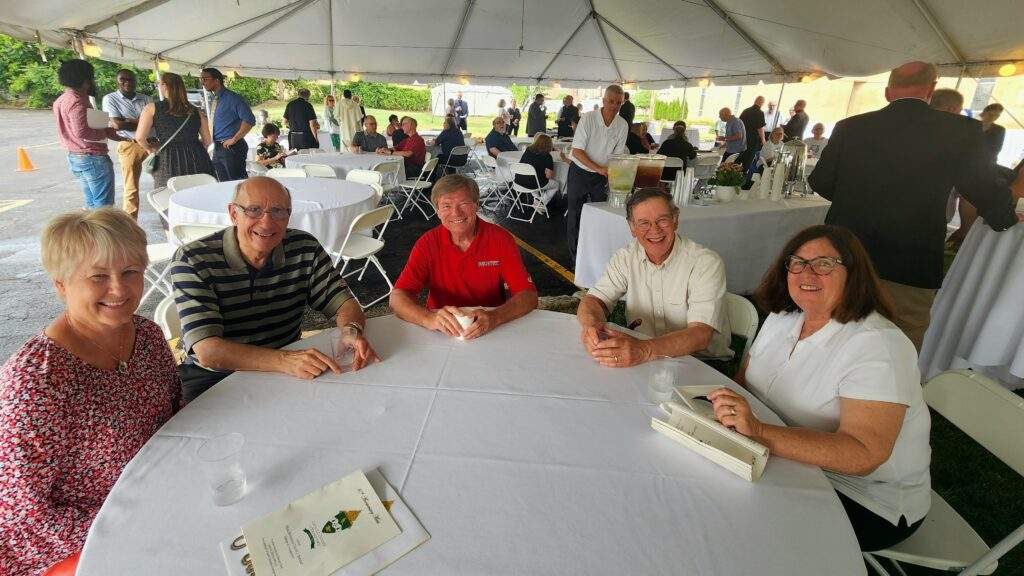
Indeed, how humbling and inspiring it is to become part of someone’s story. How blessed we are through our baptism to be inextricably linked to the Triune God and one another. How blessed we are to stand on the shoulders of those before us who paved the way and built bridges to a deeper relationship with God through practicing the virtues of faith, hope, and love. As we prepare to receive our Lord today in the Holy Eucharist like our brothers and sisters before us, let us be grateful. And let us ask that through our reception of the Eucharist our faith may be strengthened, our hope encouraged, and our love deepened so that we can go forth and heed the call of Jesus to, “Go, therefore, make disciples of the nations, baptizing them in the name of the Father, and of the Son, and of the Holy Spirit, teaching them to observe all that I have commanded you.” And, yes, let us especially in tough times continue to trust in the Lord Jesus who is with us until the end of the age.

